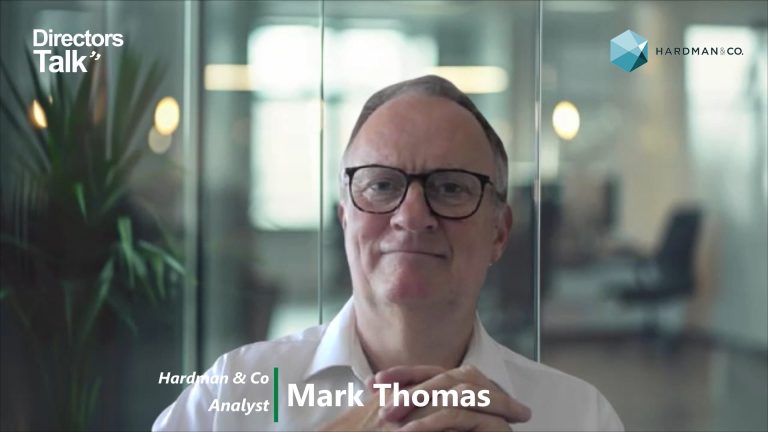ICG Enterprise Trust plc (LON:ICGT) is the topic of conversation when Hardman and Co’s Analyst Mark Thomas caught up with DirectorsTalk for an exclusive interview.
Q1: Your recent report on ICG Enterprise Trust sits behind a disclaimer. What can you tell us about that?
A1: It is just the standard disclaimer that many investment companies have. In essence, for regulatory reasons, there are some countries (like the US) where the report should not be read. In the UK, because private equity (PE) is not a simple asset class, it should only be looked at by professional/qualified investors. Page 2 of the report gives all the details.
Q2: Can you give us a brief summary of your report ‘Spotlight on secondaries’?
A2: ICGT reported a further strong quarter of NAV growth to October 2021. One highlight from these results was secondary fund investments. In this note, we reviewed the strategic allocation that may see these assets become 20%-25% of ICGT’s portfolio over the next few years.
The reasons ICGT is increasing the assets’ weighting include i) these assets have known underlying investments, ii) they return cash quickly and iii) they do not incur material future commitments – all fitting ICGT’s portfolio management well.
The raised allocation reflects new, highly experienced and well-connected hires who have a strong track record in secondary fund investments.
Q3: So, the cash flow and returns both look attractive. Can you tell us a bit more about those?
A3: In terms of cash, secondary investments have a shorter period before distributions are made, as secondary investments become available some years after the fund’s launch, and after investments in the underlying companies have been made. Consequently, the time to the sale of the underlying assets is reduced.
Additionally, the initial commitment of cash is immediate, allowing for rapid portfolio management and, while there may be further calls from the fund, usually, most investments have been made.
In terms of return, the one-off valuation uplift on sale happens within a shorter time frame. On average, secondary investments are expected to have a higher IRR than primary investments (albeit a lower money multiple of cost). The secondary investor needs to analyse the manager’s skill in optimising value from the remainder of the PE value chain, but the manager knows the specific investments, and is not exposed to blind-pool risk.
Q4: So, what has ICGT been doing in this market?
A4: The main build-up in 2021 secondary investments has been in ICG’s managed LP investments. ICG Ludgate Hill Fund I, which, at the end of October 2021, accounted for 4% of the portfolio, the largest single fund investment and which has been built from nil in January 2021. Since the end of October 2021, a further $20.0m (£15m) has been committed to ICG Ludgate Hill Fund II. Overall secondary investments at the end of October were 17% of the fund, up from 12% in January, so it has been a rapid build-up.
The timing of the growth in 2021 reflects the recruitment of a key team of individuals with the relevant, long-term experience in the secondaries market. It is critical to have the right contacts with the key four/five intermediaries to ensure that ICGT has critical mass in the flow of business to allow it to cherry-pick the right deals. We understand that the funds are selected from around $30-$40bn of transactions offered to the ICGT secondary dedicated managers last year. We believe this represents around a third of the global market and gives ICGT material scale.
There is an important difference for ICGT compared with others in the market. It is ICGT fund managers who are specifically selecting the secondary investments, i.e. it is an actively managed portfolio focused specifically on this fund. This gives the fund a focus on the secondary investments, something that is not present in other listed PE vehicles, where secondary investments are chosen by the investment manager, not the specific fund managers.
Q5: And are there any other secondary investments or activities of note?
A5: Yes. Of note, ICG Enterprise Trust invests three ICG managed vehicles, which invest in GP-led deals, Strategic Equity Funds II and IV (combined value £46m), and Strategic Secondaries Fund II (£10m).
It also has just over 5% of the fund in third-party secondary funds where it invests with existing managers in funds it already knows well and where it is deepening existing known exposures, and where the work has already been done, rather than taking on new positions.
Secondary expertise was helpful to ICGT’s own overall portfolio construction, when it allowed ICGT to be a seller and tidy up its portfolio in the same way as other LPs, by selling residual primary positions, most notably in its Graphite holding in 2021.






































